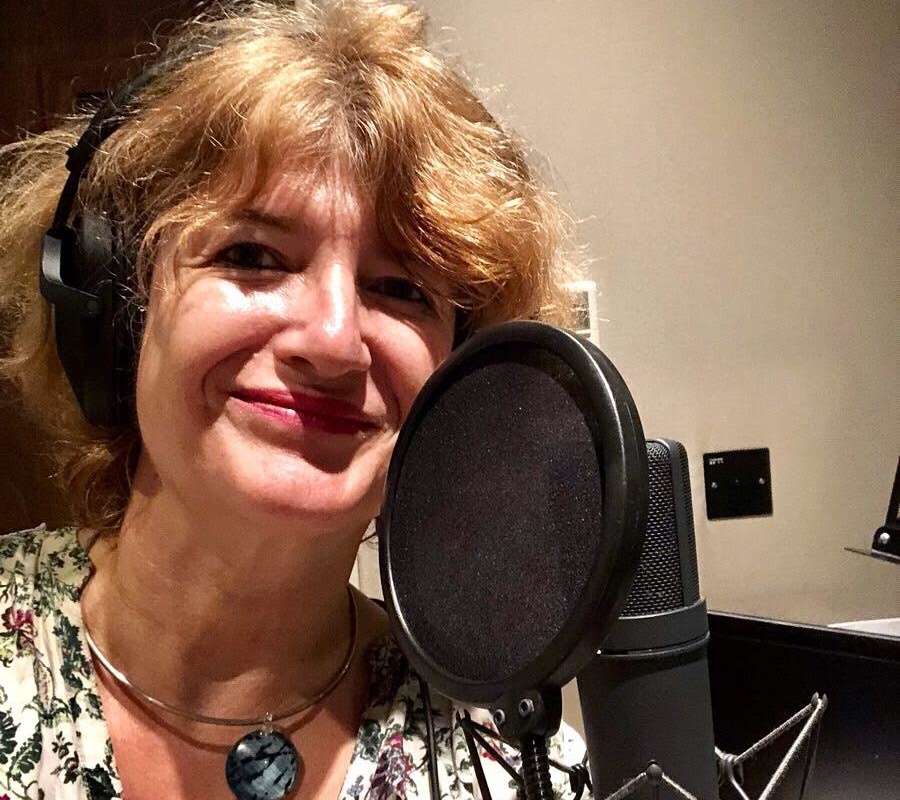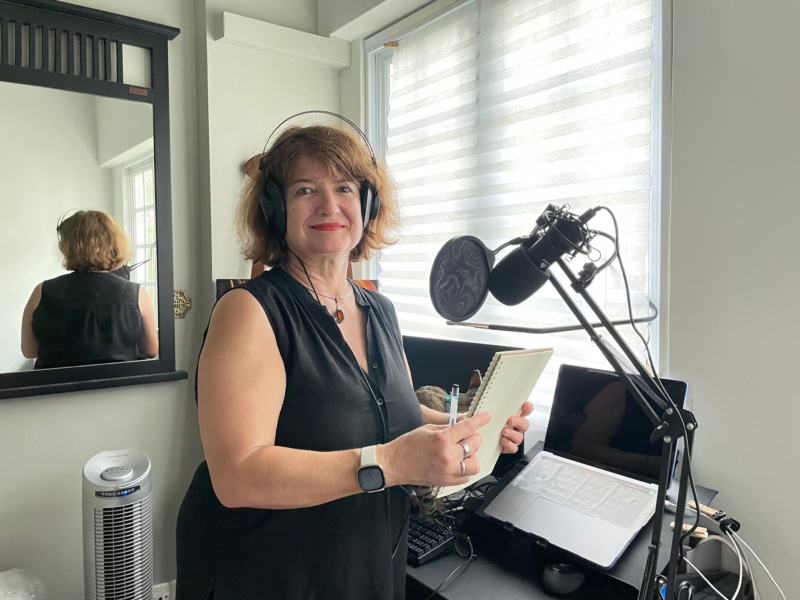Like many firsts in life, I can easily recall the very first voiceover I ever recorded. I was terrified, yet excited. It was a 30-second commercial for Yves Saint Laurent’s Baby Doll perfume. I was very self-critical, yet feedback from family and friends was extremely positive and spurred me on. After shrugging off self-doubt and self-consciousness, I went on to record commercials, documentaries and television series for various platforms, host a music programme on Singapore Airlines, and enjoy a 20 year (and ongoing) career as a radio presenter in news and lifestyle. I came to realise the power of using my voice as a tool for engagement, education and entertainment. Basically, it helps me connect and it can for you, too.
Audio Book Narration
In 2019, I was approached by a global audiobook production company to record a number of books written by Singapore authors. I was thrilled – I could reach out to a new audience! To people who were unable to read their physical books, kindles, tablets and other screens for whatever reason. Hopefully my voice could provide comfort, connection and company to those who live alone, are visually impaired or unwell, or unable to have any interaction with people, such as throughout the covid-19 lockdown.
My mother, Chris, who is 86, lives alone in London. She was thrilled to hear that I would be narrating a number of audio books. She’s always been an avid reader. Since her eyesight deteriorated last year, she now only visits her local library to take out audio books. Whether she’s walking around her apartment or sitting in her armchair, she listens to both fictional and non-fictional books. She has the engagement and ‘company’ of the human voice on days when isn’t able to leave the house or has no visitors.
Audio Book Reach
It’s amazing what a difference the audio books have made to my mother’s life. She has always sought out information. She finds it so frustrating not being able to read unless she has a super big magnifying glass at hand. I can’t imagine what it would be like if she was no longer able to access knowledge and stories. She says having a human voice narrating makes a difference and is a huge connector.
But it’s not just the sight-impaired or those who live alone who can reap the benefits of listening to audio books. If you’re active and like to run or do other sports then you might consider listening to an audio book. Jog a few kilometres, play a round of golf or do some gardening. Or how about plugging one in while doing the laundry, whipping up a meal, travelling on public transport, or driving the car?
Keep your mind active. Learn a language, do a course, drink in the words of inspirational leaders, revisit the classics, listen to people’s memoirs, or lose yourself in the latest romance novel. There are so many options out there in different formats to suit all ages and technological abilities. From the cassette tape (yes, online e-commerce sites still sell them) to the USB stick to CDs to MP3 to digital downloads on your smartphone, iPad, tablets or via streaming. There really are so many alternatives available. My mother uses CDs.
In addition to libraries, shops and e-commerce sites, there are other resources from which to source your audio books. Check out the charitable and non-profit organisations in your area who may be able to help you source material. This is particularly helpful if you are visually impaired or have a learning disability.
Not all audio books are perfect – both the voice and production values can make a difference. Sometimes, for example, you might prefer a male or a female voice, or a particular age. When a voice hasn’t been cast well it can make a difference to the listener. It’s bit like when a particular podcaster, radio or television presenter’s voice doesn’t work for the listener because it’s the wrong tone, pitch or has bad delivery.
I joke with my radio colleagues that, in the future they’ll perhaps replace we radio presenters with AI technology. Yes, there’s Alexa, Siri and Google Assistant out there who do a marvellous job of helping us in our every day lives. My Google Assistant turns on the television, lights and aircon with her cheery tone. I swear that every now and then she sighs and her tone seems a little sharper than normal… but can the human voice really be totally replaced? Maybe in video games or explaining information, but can we truly replace human emotion, authenticity and, ultimately, the humanity of the human voice?
After 20+ years of hosting radio shows and inflight programmes; voicing anything from airline campaigns, to food, beauty, cars, sports, financial and technological products or strategies for television and radio commercials and company websites; narrating documentaries and audio books, there are several projects I’m particularly proud of. Amongst those is my first audio book narration – for Loss Adjustment by Linda Collins. This is Linda’s journey after her late daughter, Victoria, committed suicide in 2014 at the age of 17.
Voicing Loss Adjustment was an emotional experience for me. I was voicing Linda, her daughter and others in the book, which requires feeling into your sense of each person and what they are going through in that moment. I was very moved.
In the final session, Linda sat with the engineer while I completed the last few chapters. I had only been told that day that she may join us. I hadn’t met her before and I felt that telling her story was a huge responsibility. After I narrated the final few words of her book I looked up and saw that she was crying. I went over to greet her and thank her for her beautiful book. She hugged me tightly and paid me the biggest compliment: “Justine, you have totally captured the tone and feeling of my book. I can’t thank you enough.”
And there is the power of being human, and of the human voice.
Justine Moss is a radio presenter and voiceover artist living in Singapore. She can be reached on justinemoss.com

